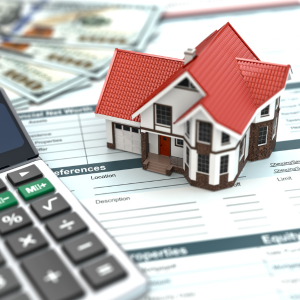
Analyzing Tax Implications of Selling a House in Massachusetts
Selling a house is a big financial step, and understanding the tax implications of selling a home in Massachusetts is crucial for homeowners. Massachusetts property sale taxes can impact your profits. This guide will cover essential topics, including Massachusetts capital gains exclusion and relevant home sale taxes, to help you navigate these financial matters effectively.

What Are the Common Taxes When Selling a House?
When you sell a house in Massachusetts, several taxes might apply:
- Massachusetts Real Estate Sale Taxes: These taxes are added to the transaction and can differ. Knowing about state taxes on home sales in Massachusetts can prevent unexpected costs.
- Real Estate Transfer Tax Massachusetts: This tax is calculated based on the property’s value. Make sure to figure this out ahead of time.
- Massachusetts Deed Excise Tax: Often called conveyance tax, this is another essential tax sellers need to consider during the sale.
Understanding these taxes can help you better prepare for the financial outcomes when selling your property. Additionally, it’s important to consider factors like how much you lose when selling a house as-is.
How Do Capital Gains Tax Affect Home Sellers?
Capital gains tax is a key factor when selling a home. If your property’s value has increased in Massachusetts, you may owe capital gains tax on the difference between the purchase and selling prices.
- Massachusetts Home Sale Capital Gains: If you’ve owned the home for over a year, the IRS considers it a long-term gain and typically taxes it at a lower rate than short-term gains.
- Massachusetts Long-Term Capital Gains Tax: The rate for long-term gains can be more favorable, but having the proper documents and knowledge is essential.
- Massachusetts Short-Term Capital Gains Tax: If you held the property for less than a year, the IRS might classify it as a short-term gain and tax it at a higher rate.
Knowing the Massachusetts tax rate on property sales and how it applies to your case can help minimize potential tax liabilities.
Are There Exemptions Available for Primary Residences?
Luckily, there are exemptions for those selling a primary residence:
- Primary Residence Sale Tax Massachusetts: One potential benefit is that homeowners can exclude capital gains tax on a primary residence if they meet certain conditions.
- Massachusetts Capital Gains Exclusion: This allows homeowners to exclude a large portion of their profit from being taxed, depending on how long they’ve lived in the home.
- Tax Exemption for Home Sale Massachusetts: Being informed about possible exemptions and qualifying for them can lead to significant savings.
- Massachusetts Homestead Exemption and House Sale: While mainly a protection against creditors, understanding homestead laws’ effects on property sales can offer additional benefits.
These exemptions can significantly reduce or even eliminate the taxes owed, enhancing the profit from selling your home. Consulting with a tax professional for specific advice tailored to your situation is recommended.
Massachusetts Real Estate Transfer Taxes
Understanding the real estate transfer tax, also known as the Massachusetts deed excise tax or Massachusetts conveyance tax, is essential when selling property in Massachusetts. This tax is charged on property sales and is usually a percentage of the sale price, but the rate can change by county.
In Massachusetts, the general transfer tax rate is $2.28 for every $500 of the sale price. However, this can vary; for example, Barnstable County adds an extra fee for environmental conservation. Sellers should know these regional differences in Massachusetts property sale taxes when planning their transactions.
How Is Real Estate Transfer Tax Calculated?
To calculate the real estate transfer tax in Massachusetts, follow these steps:
- Determine the Sale Price: Find out the total sale price of the property.
- Apply the Standard Rate: Multiply this price by the standard rate of $2.28 per $500.
- Include Additional Fees: Extra fees may apply in some counties like Barnstable.
For instance, if you sell a home for $400,000, calculate the Massachusetts property sale taxes by dividing $400,000 by $500 and multiplying by $2.28. The total comes to $1,824. Understanding these Massachusetts deed excise tax calculations helps with accurate financial planning for your property transaction.
What Are the Exemptions from Transfer Tax in Massachusetts?
Some transactions are exempt from Massachusetts conveyance tax. Common exemptions include:
- Transfers Between Relatives: Property transfers between spouses or immediate family members.
- Government Transactions: Deals involving government entities are typically exempt from this tax.
- Corrective Deeds: Correcting an error in a deed might be exempt.
Knowing these exemptions from transfer tax in Massachusetts can lower your real estate costs. Consult a legal expert to find out if you qualify and how to apply these exemptions correctly.
What Documents Are Required for Paying Transfer Tax?
To pay the transfer tax in Massachusetts, gather these key documents:
- Deed of Transfer: Records the change of property ownership.
- Excise Tax Form: A form that records the deed excise tax payment.
- Sales Agreement: A signed agreement listing the sale’s terms.
These documents are crucial for meeting Massachusetts conveyance tax requirements. Having these transfer tax documents ready helps ensure compliance and smooths the transaction process.
Understanding Withholding Requirements When Selling Property
Knowing your responsibilities regarding withholding tax when selling property in Massachusetts is essential. The state has specific requirements for real estate transactions to ensure that taxes owed on the sale are collected. This guide will explain how these rules affect different sellers and offer ways to reduce withholding amounts.

Do Nonresidents Face Different Withholding Rules?
Nonresident property sellers in Massachusetts may need to follow withholding rules that are different from those of residents. Buyers must withhold a portion of the purchase price if the seller doesn’t live in the state. Ensuring nonresident sellers comply with tax laws helps maintain proper legal and financial practices. These rules can help nonresidents deal with real estate sales smoothly and meet all their tax duties.
How Can Sellers Minimize Withholding Amounts?
Sellers aiming to lower withholding amounts have several options:
- Understand Exemptions: Learn about exemptions that might apply to certain sales or sellers. For example, selling your primary home might exempt you under certain conditions.
- Plan Your Sale Wisely: Efficiently timing or organizing your sale can lower the withholding amount. Talking to a tax advisor can provide strategies suited to your situation.
- Apply for a Waiver: Sometimes, you can apply for a waiver to reduce or eliminate withholding. You must show that your expected tax liability is less than the standard withholding rate.
Using these approaches, property sellers in Massachusetts can potentially lower their withholding and make the sale more cost-effective.
Are There Specific Forms for Reporting Withholding?
Massachusetts real estate deals require specific forms for reporting withholding. Proper documentation is crucial to avoid penalties. Here are the key forms to know:
- Form 1-NR/PY: Nonresidents use this form to report income and withholding.
- Form M-2848: Use this to appoint someone to file or represent you in tax matters.
- Form REW: Required for reporting real estate withholding at the time of sale.
Correctly filling out these forms is essential. A tax expert can help ensure you file all necessary documents correctly. Managing withholding tax reports well is key to a smooth real estate transaction.
For more help, Naples Home Buyers can help you understand these requirements and optimize your property sale experience. Contact us for expert advice and support.
Impact of Federal Taxes on Home Sales in Massachusetts
What Federal Taxes Must Be Considered When Selling a Property?

When selling a property in Massachusetts, it’s essential to understand the federal taxes involved. Sellers must consider key tax factors to meet IRS requirements. A significant concern is how the sale impacts your taxable income. The capital gains tax is the primary federal tax that applies to the profit from the sale of a home.
Calculate the gain or loss from the sale by subtracting your adjusted cost basis from the sale price to determine if you owe capital gains tax. You also need to report the income from your house sale in Massachusetts on your federal tax return. Your gains could result in tax obligations if they exceed certain thresholds.
How Does the IRS Handle Gains from Home Sales?
The IRS has guidelines for handling gains from home sales, particularly for capital gains tax. If the property is your primary residence, you may qualify for exemptions that can reduce your taxable profits. The IRS allows exclusions of $250,000 for single filers and $500,000 for those married filing jointly. To qualify, you must have lived in the house for at least two of the last five years before selling.
These exclusions mean you might not have to pay capital gains tax if your gain is below these amounts. Understanding these exemptions helps you save money and stay within tax laws.
How to Determine Cost Basis for Federal Tax Purposes?
Determining the cost basis of your home is crucial for calculating federal taxes on a home sale. The cost basis usually starts with the purchase price. You should also include any home improvements that add value since these can increase your basis and lower your taxable gain.
Depreciation and selling expenses like professional commissions can adjust your basis, which depends on who is acting. Correctly calculating this adjusted cost basis is essential to determine your capital gains and meet federal tax obligations. Knowing these details will assist you in accurately reporting house sale income in Massachusetts.
Being informed about federal taxes, including exemptions, and properly determining your cost basis can significantly affect the financial outcome when selling your home. For personalized advice, consult with tax professionals to comply with laws and enhance your tax strategy.
Steps to Prepare for Tax Obligations in Massachusetts
What Should Sellers Know About Closing Costs and Taxes?

When selling property in Massachusetts, sellers must understand the closing costs and taxes involved. Massachusetts house sale closing costs often include title insurance, recording fees, and attorney fees. These costs can vary depending on the property’s location and value. Sellers should also be aware of Massachusetts property sale taxes, including state taxes on home sales in Massachusetts. Awareness of these expenses helps calculate the financial outcome of your property sale.
How Can Home Improvements Influence Tax Amounts?
Home improvements can affect your tax obligations when selling a house in Massachusetts. Specific improvements might qualify you for the Massachusetts home improvement tax credit, which can reduce taxable gains. These improvements help adjust the cost basis of your property. By increasing the cost basis with documented improvements, sellers may lower their capital gains tax liability. This adjustment benefits those considering tax deductions when selling a home in Massachusetts. Keeping proper records of these expenses ensures that you can maximize your tax benefits.
How Do You Report a Home Sale on Your Tax Return?
Reporting house sale income in Massachusetts needs careful attention to detail. When preparing your tax return, report income from the sale accurately. The IRS requires you to report any profit exceeding the allowable exclusion for primary residences as capital gains. Massachusetts home sale tax reporting involves calculating the net gain and considering both federal taxes and capital gains tax on home sales in Massachusetts. Following these rules helps avoid penalties and ensures a smooth tax reporting process.
FAQs:
What taxes am I required to pay when selling my house in Massachusetts?
When you sell your house in Massachusetts, you must pay capital gains tax if your house’s value has increased. You must also settle local property taxes until the sale date and pay the Massachusetts transfer tax. Talking to a tax professional to understand what you must do.
Are there exemptions for capital gains tax when selling my home?
Yes, there are exemptions. If you’ve lived in your home for at least two of the last five years, you might qualify for a capital gains tax exclusion of up to $250,000 if you’re single or $500,000 if you’re married filing jointly. Check with a tax advisor to see if you qualify.
How can I minimize taxes when selling my property?
To lower taxes, try to qualify for the capital gains exclusion by meeting the residency requirements. Keep records of home improvements, as these can increase your cost basis and reduce taxable gains. Speaking with a tax expert can provide strategies tailored to your situation.
Do I owe property tax after selling my house?
The buyer and seller typically settle property taxes up to the sale date, which is usually handled at closing. To avoid surprises, make sure all tax details are evident during the closing.
Is there an impact on taxes if the property was a rental before selling?
If the property was rented out, you might have to deal with depreciation recapture, which can affect your tax burden. The IRS may tax some of the depreciation benefits you claimed while renting. Consulting a tax professional is crucial for handling these details.
Can selling a home affect my tax bracket?
Selling a home might affect your tax bracket, especially if your capital gain significantly increases your income. Understanding how this affects your overall taxes is essential; a financial advisor can help assess your situation.
What should I consider if I want to sell my home quickly?
If you need to sell your home fast, consider setting a competitive price and staging it effectively. Quick sales can complicate tax matters, so it’s wise to consult with professionals.
How does selling my home affect my retirement planning?
Selling your home can impact retirement plans, especially regarding the money from the sale. Consider tax effects and investment options, and work with a financial planner to ensure the sale aligns with your long-term goals.
Key Insights
- When selling a house in Massachusetts, you must pay taxes on the capital gains from the sale. The tax amount depends on whether you’ve lived in the property for at least two years.
- Massachusetts homeowners are required to pay property taxes annually. It’s important to understand your property’s assessed value.
- Selling an appreciated property may require paying capital gains tax. This rate depends on your income bracket and filing status, such as when married filing jointly.
- If certain conditions are met, you can exclude up to $250,000 of the gain from taxable income on the sale of your primary residence or $500,000 for married couples.
- If you’ve owned and lived in your home for at least two of the five years before selling, you might still qualify for exclusion benefits even after moving.
- We recommend checking the impact of any exclusions or exemptions, particularly if you’ve claimed home office deductions or completed major renovations.
- Different tax rules might apply if the property was inherited, possibly involving a stepped-up basis for calculating potential taxes owed.
- Planning ahead and consulting a tax professional can help you navigate complex situations when selling a house in Massachusetts, ensure compliance, and maximize savings.
- Understanding Massachusetts’s specific tax requirements is crucial, including any unique provisions, like Schedule B, which provides 12% for capital gains over a certain threshold.
- Consider comparing potential lower long-term capital gains rates to short-term rates, which are higher if you’ve owned the property for less than a year.
These details apply to the entire state of Massachusetts, including cities like Springfield, Amherst, Greenfield, Huntington, and Hadley, as well as their surrounding areas. If you require extra assistance or have particular inquiries, please contact us at (413) 331-6060. Please see our website, Naples Home Buyers, for more information and complete descriptions of our services.
Sell Your House in Massachusetts For Cash 💰
We buy houses in Massachusetts In ANY CONDITION! We pay CASH and you will not pay any commissions, agents, or fees. Enter your address to get your cash offer in 24 hours or less!
Resources To Help You Sell A House in Massachusetts
Give Us A Call At (413) 331-6060
If you require additional assistance or have specific questions, please do not hesitate to Contact Us at (413) 331-6060. You Can also visit our Homepage at Naples Home Buyers for more information and detailed descriptions of our services.


